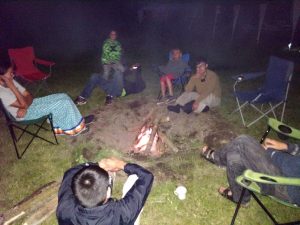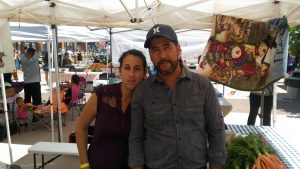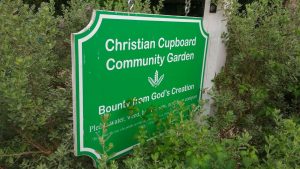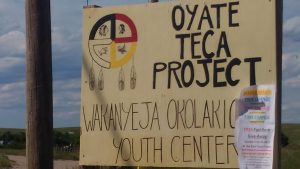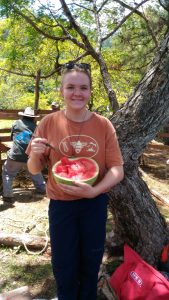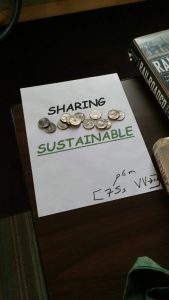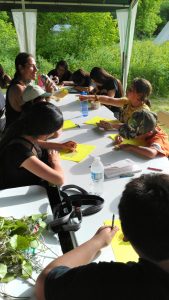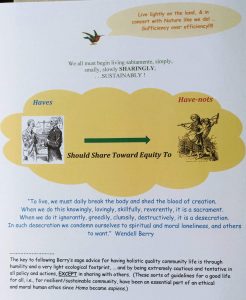My original idea for this blog site was to do very short, succinct and light, but thought-provoking, stories based on “facts” with links to substantive scientific knowledge, and with illustrations by my more artistic wife. With help perhaps I will eventually get there before I pass.
If I had been born with a silver spoon in my mouth, had I had my education paid for by my family; had I been formed in a more urban environment; had I been sheltered from the tough realities of racism, homophobia, religious intolerance, industrial agriculture, conventional capitalism and development, guns and War (All things are relative; arguments could be made that indeed all of these did occur for me.); if I had bought into: dogma, the superstition of religion; if I constantly listened to most current AM talk radio and Fox “News”/Commentary; had I accepted conventional pseudo-conservatism and capitalism …
these paulpeaceparables-blog posts would of course be much different.
These blog posts of mine, and this one in particular, are/is informed by experiences from:
1. a very simple, disciplined and good man, Alton Martin, and his basic conservatism, frugality, utilitarianism, pragmatism, and sense of place and community ;
2. what was a mostly rural community of Devine, Texas with some considerable racism and tribalism;
3. Pope John the 23rd; the sixties, civil unrest, and the Vietnam Conflict;
4. Dick Ridgway and biological control; and E.J. Dyksterhuis and range ecology;
5. David Pimentel and energetics;
6. Jim Hightower’s Texas Department of Agriculture;
7. yesterday’s (11/28/15) This American Life, No. 573 “Status Update” http://www.thisamericanlife.org/radio-archives/episode/573/status-update .
…………………………………………………………………….
I. Live Like the Poor. We are in a state of overshoot relative to carrying capacity and there is dreadful inequity in the world. … What are we going to do about this?
I agree with the Pact of the Catacombs and liberation theology that bishops and all of us should live like the poor. We need to work toward sustainability (social justice, humaneness, and ecological sanity) and equity for all humans and other species. http://www.npr.org/sections/parallels/2015/11/26/456376586/pope-francis-emphasis-on-poverty-revives-the-pact-of-the-catacombs This is the ethic of reciprocity … in a holistic sense and at its very core! (This ethic has been around in cultures, schools of philosophy, religions from since ancient times. Nevertheless we continue to have much to learn about truly realizing it in practice in community.)
II. Meaning of Human Existence. From The Meaning of Human Existence, E.O. Wilson, with whom I generally and mostly agree:
“We are not predestined to reach any goal, nor are we answerable to any power but our own. Only wisdom based on self-understanding, not piety, will save us. There will be no redemption or second chance vouchsafed to us from above. We have only this one planet to inhabit and this one meaning to unfold. To take this step in our journey, to get hold of the human condition, we need next a much broader definition of history than is conventionally used.”
“… we are still part of Earth’s fauna and flora, bound to it by emotion, physiology, and, not least, deep history. It is folly to think of this planet as a way station to a better world. Equally, Earth would be unsustainable if converted into a literal, human-engineered spaceship.
Human existence may be simpler that we thought. There is no predestination, no unfathomed mystery of life. Demons and gods do not vie for our allegiance. Instead, we are self-made, independent, alone, and fragile, a biological species adapted to live in a biological world. What counts for long-term survival is intelligent self-understanding, based upon a greater independence of thought than that tolerated today even in our most advanced democratic societies.”
“Do we really want to compete biologically with robot technology by using brain implants and genetically improved intelligence and social behavior? This choice would mean a sharp departure away from the human nature we have inherited, and a fundamental change in the human condition.
Now we are talking about a problem best solved within the humanities, and one more reason the humanities are all-important. While I’m at it, I hereby cast a vote for existential conservatism, the preservation of biological human nature as a sacred trust. We are doing very well in science and technology. Let’s agree to keep it up and move both along even faster. But let’s also promote the humanities, that which makes us human, and not use science to mess around with the wellspring of this, the absolute potential of the human future.”
“ … understanding creates the dilemma: whether to stop the destruction for the sake of future generations, or the opposite, just to go on changing the planet to our immediate needs. If the latter, planet Earth will recklessly and irreversibly enter a new era of its history, called by some the Anthropocene, an age of, for, and all about our one species alone, with all the rest of life rendered subsidiary. I prefer to call this miserable future the Eremocene, the Age of Loneliness.”
“Earth, to put the matter succinctly, is a little-known planet.” … “It is based on the misconception that taxonomy is a completed and outdated part of biology.” … “The exploration of biodiversity has few friends in the corporate and medical world.” … “It is an inconvenient truth of the environmental sciences that no ecosystem under human pressure can be sustainable indefinitely without knowing all of the species that compose it, which commonly number in the thousands or more. The knowledge coming from taxonomy and biological studies dependent upon it are as necessary for ecology as are anatomy and physiology for medicine.”
“Without nature, finally, no people.”
“Unfortunately a religious group defines itself foremost by its creation story, the supernatural narrative that explains how humans came into existence. And this story is also the heart of tribalism. No matter how gentle and high-minded, or subtly explained, the core belief assures its member that God favors them above all others.” … “Faith is biologically understandable as Darwinian device for survival and increased productivity.” … “ … they [a great many educated citizens] understand the rule attributed to the Roman stoic philosopher Seneca the Younger that religion is regarded by the common people as true, by the wise as false, and by rulers as useful.” … “Faith is the one thing that makes otherwise good people do bad things.” … “In America, for example, it is possible in most places to openly debate different views on religious spirituality—including the nature and even the existence of God, providing it is in the context of theology and philosophy. But it is forbidden to question closely, if at all, the creation myth—the faith—of another person or group, no matter how absurd.” … “Dogmas forced on believers, he [philosopher Soren Kierkegaard] said, are not just impossible but incomprehensible—hence absurd.” … “ … some problems can never be solved, only outgrown. And so it must be for the Absolute Paradox. There is no solution because there is nothing to solve.”
“I don’t believe it too harsh to say that the history of philosophy when boiled down consists mostly of failed models of the brain.”
“Human beings are not wicked by nature. We have enough intelligence, goodwill, generosity, and enterprise to turn Earth into a paradise both for ourselves and for the biosphere that gave us birth. We can plausibly accomplish that goal, at least be well on the way, by the end of the present century. The problem holding everything up thus far is that Homo sapiens is an innately dysfunctional species. We are hampered by the Paleolithic Curse: genetic adaptations that worked very well for millions of years of hunter-gatherer existence but are increasingly a hindrance in a globally urban and technoscientific society.” … “Too paralyzed with self-absorption to protect the rest of life, we continue to tear down the natural environment, our species’ irreplaceable and most precious heritage. And it is still taboo to bring up population policies aiming for an optimum people density, geographic distribution, and age distribution. The idea sounds “fascist,” and in any case can be deferred for another generation or two—we hope.”
“In a nutshell, individual selection favors what we call sin and group selection favors virtue.”
III. Technology. “Technology makes us forget what we know about life.” Sherry Turkle in Reclaiming Conversation http://www.pbs.org/newshour/bb/how-your-cellphone-is-silently-disrupting-your-social-life/
IV. Story of Our Lives.
“’The Road Not Taken’
By Robert Frost
Two roads diverged in a yellow wood,
And sorry I could not travel both
And be one traveler, long I stood
And looked down one as far as I could
To where it bent in the undergrowth;
Then took the other, as just as fair,
And having perhaps the better claim,
Because it was grassy and wanted wear;
Though as for that the passing there
Had worn them really about the same,
And both that morning equally lay
In leaves no step had trodden black.
Oh, I kept the first for another day!
Yet knowing how way leads on to way,
I doubted if I should ever come back.
I shall be telling this with a sigh
Somewhere ages and ages hence:
Two roads diverged in a wood, and I—
I took the one less traveled by,
And that has made all the difference.” http://www.poetryfoundation.org/poem/173536
“The poem isn’t a salute to can-do individualism,” … “It’s a commentary on the self-deception we practice when constructing the story of our own lives.” [David Orr, author, The Road Not Taken] http://nypost.com/2015/08/16/the-famous-robert-frost-poem-weve-read-wrong-forever/ http://www.pbs.org/newshour/bb/weve-gotten-wrong-robert-frost-classic/ http://thedianerehmshow.org/shows/2015-08-20/the-100th-anniversary-of-robert-frosts-poem-the-road-not-taken
V. Truth. Homo sapiens will definitely fizzle out eventually. Therefore does a goal/process of conservation and development of sustainable community, Simple/Small/Slow, positively ethical applied community ecology … really mean anything? Of course I strongly believe it does. The reason for life and species, and including viruses and prions, is an effort to keep their effective genes/proteins/life entities in the universe.
Truth? I suppose for me it is/has become:
1. my friend and loved one, Betsy; grand kids and kids; other family and friends and loved ones;
2. Dynamic homeostatic symbioses or “nature” (such as it remains and as I know it in my life time) and community in an ecological sense;
3. science and a quest for knowledge and productive work in that quest; healthy recreation that is mostly in concert with family, community in the ecological sense, Nature, The Land, a healthy, sustainable Commons.
4. realization of humility, communication, knowledge, wisdom and prudence toward quality of life for as many as possible for as long as possible.
VI. I Am the Way, the Truth, and the Life. In “We Hear You”, The Progressive, October 2015:
“Was Jesus Generous?
In the first paragraph of his article in the May issue (‘A Pacifist Protest Against the Peaceful Drone’) Wendell Berry extols Jesus’s ‘unquestioning generosity to the poor.’ Berry sees no imperfections in his religious hero—only moral supremacy.
Nevertheless, I am not convinced. First of all, to be generous one has to have something to give (such as money, food, or shelter). Someone who offers only love or encouragement or a blessing to the needy may be a nice person, but certainly not a generous one. If, for example, a hungry man approaches me for help, and I say to him, ‘I’ll pray for you,’ am I showing generosity? Of course, not!
As implied in Luke 9:58, Jesus had plenty of nothing—and the Gospels mention repeatedly that nothing was plenty for him. He even exhorted his disciples not to crave worldly goods or seek creature comforts, but to put their trust in God for their needs (Luke 12:22-34). So, how could Jesus be generous if he had nothing to be generous with?
Perhaps Berry was thinking about Matthew 15:32-38, where Jesus miraculously feeds thousands of people with seven loaves of bread and a few fish. But that incident, in my opinion, still misses the mark about Jesus/s generosity.
Let’s reflect on it: If Jesus was a God with unlimited powers, he could have fed every hungry person on Earth, not only his own groupies. If I (or Berry, I’m sure) had the miraculous ability to feed every hungry person on the planet, we would. But if we gave food only to those who glorified us, we’d be exhibiting not generosity but only self-centered concern about our own importance.
–David Quintero
Monrovia, California”
…………..
“To live, we must daily break the body and shed the blood of Creation. When we do this knowingly, lovingly, skillfully, reverently, it is a sacrament. When we do it ignorantly, greedily, clumsily, destructively, it is a desecration. In such desecration we condemn ourselves to spiritual and moral loneliness, and others to want.” Wendell Berry
__________________________________________________
*What Maury Maverick used to call succotash.
pbm
[ 7 Ss / VV->^^ ]


